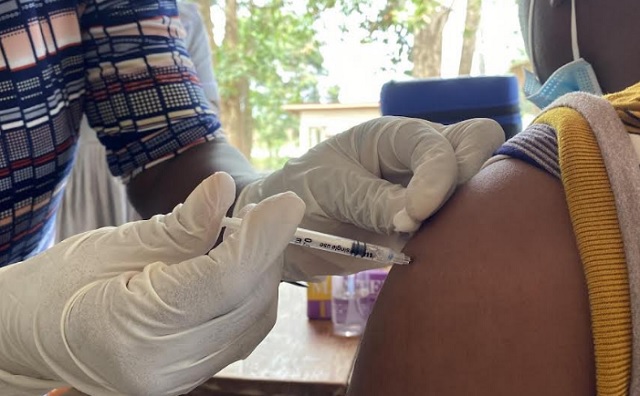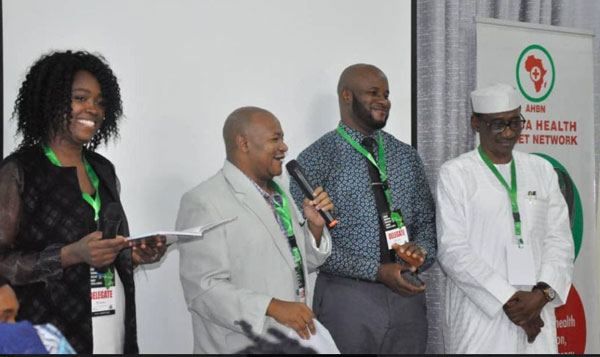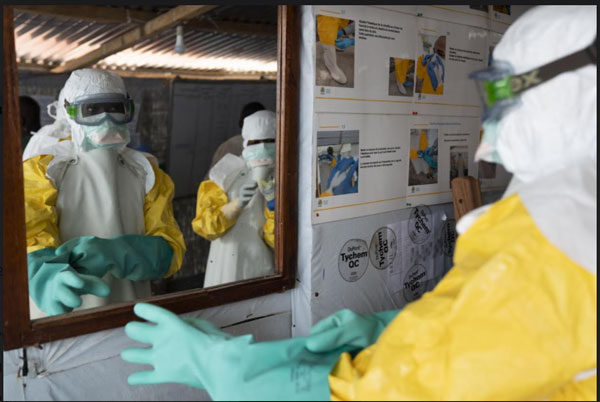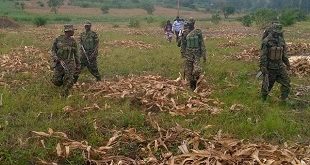
African civil society note role of donors but want Govts to raise money locally
Abuja, Nigeria | RONALD MUSOKE | African governments must raise their health budgets if the continent is to tackle its ever rising disease burden, says the African Health Budget Network (AHBN), a pan-African civil society consortium on health budget financing.
At a recent summit in Abuja, Nigeria, Dr. Aminu Magashi Garba, its founder and coordinator told The Independent that the COVID-19 pandemic had taken Africa by surprise and African governments could not afford to remain unprepared for the next pandemic.
“We were not ready; there were not enough medical equipment as well as skills and facilities to confront COVID-19,” he told The Independent, “We didn’t have enough domestic resources. So, this summit is about learning about the COVID-19 and post COVID-19 pandemic era and how we can strengthen our health security agenda across Africa.”
Dr. Magashi said for Africa to build a robust health system that will help it prevent, control and contain infectious disease outbreaks, governments on the continent must be willing to fund their health budgets using domestic resources. He listed COVID, Meningitis, Lassa Fever, Cholera, Anthrax, Diphtheria, Tuberculosis, and Ebola as existential threats in Africa.
The summit held from Aug.15-17 attracted civil society organizations and the media from Senegal, Sierra Leone, Nigeria, Cameroon, Uganda, Kenya, Malawi and Zimbabwe. They convened to build skills as partners in advocacy for accountability and domestic resource mobilization for health security and systems strengthening in Africa.

Dr. Opeyemi Adeosun from the Health Reform Foundation of Nigeria, a non-profit that supports advocacy towards health reform in the West African country, said leaders in Africa forget easily that preparedness is one of the most important aspects when it comes to dealing with public health emergencies. He said more resources need to go into health security because people, including legislators, do not have enough information related to surveillance of diseases in their countries.
“For sure, we don’t know what the next pandemic will be,” he said, “So investing in our health security will help us deal better with the epidemics and in case of future pandemics, we are able to tackle them head-on.”
He said a strategy must involve preparing more for diseases which are endemic in communities and he also listed Cholera, Diphtheria, Lassa Fever and Malaria. He said because these diseases rarely affect the rich, the governments don’t pay as much attention.
Abuja Declaration targets
The summit in Abuja took place almost 22 years after African presidents met in the same city under the auspices of the Organisation of African Unity (African Union) and pledged to allocate at least 15% of their annual national budgets to the health sector. That proclamation became known as the Abuja Declaration.
The presidents sought to fix Africa’s fragile health systems by ending the repeated failure by the governments to prioritise health and allocate it sufficient resources. At the time, the pressing challenges were HIV and AIDS, Malaria and Tuberculosis.
“We pledge to set a target of allocating at least 15% of our annual budget to the improvement of the health sector,” the heads of state said in an April 27, 2001 communiqué. However, two decades later, this target has proven elusive for many countries.
Health economics experts say achieving improved health is a costly venture yet many African countries hardly have wiggle room (fiscal space) in their national budgets.

Currently, African countries spend US$8-129 per capita on health, compared to high income countries that spend about US$4000. The experts say this is due to several factors but most significant among them is a low tax collection efficiency among African countries, compounded by low budget allocations to the health sector due to competing priorities.
But, Dr. Magashi told The Independent that “sometimes it is not only lack of resources, sometimes it is the capacity to manage resources.”
“When you look at our health budgets, you have to look at money from domestic resources but also money from external or international development partners and, sometimes, our countries have this money but our ability to distribute this money by expanding the fiscal space for health sector is where the challenge lies.”
He said it is time for African leaders to be innovative in order to raise more money and when they get this money they should utilise this money efficiently.
Prosper Chitambara (PhD), a development economist working with the Community Working Group on Health in Harare, Zimbabwe, told The Independent that when national health budgets across the continent are scrutinized, most of them are largely consumption-oriented.
“In Zimbabwe, almost 80% of the health budget is earmarked for paying salaries,” he said, “So, there is not much left to invest in healthcare infrastructure development.” He said African governments fail to fulfill the Abuja Declaration target because they lack political will and commitment and rely on donor financing.
“Most countries view public spending on health as a cost and not as an investment and yet it has been demonstrated empirically that a health nation is a productive nation,” Chitambara told The Independent, “Most countries that are developed invest a significant proportion of their GDP in health.”
“We obviously need to spend more; we need to cut out a lot of wastage in our public spending especially the non-productive sectors like the military.”
Maimuna Abdoulaye, the health economist and monitoring and evaluation specialist at AHBN also explained to The Independent that Africa, as the second-largest and second-most populated continent in the world with over one billion people, needs to be prepared to respond to future pandemics such as Anthrax, Ebola, Monkey Pox, and Marburg.
African health systems, she said, must be financed to detect, respond, and prevent health threats. She said money should go to essential health infrastructure, medical supplies and training of healthcare personnel and surveillance systems and rapid response teams.
“A strong health system does not only safeguard the populations but also contributes to economic growth and stability which is needed in many African countries,” she said.
“The issue of health is a security agenda because we cannot talk about the well-being of people without really considering their security,” noted Betty Wangui, the Communications Lead at Pathways Policy Institute, a Kenyan policy and accountability thinktank.
“I don’t believe that our governments don’t have resources,” she said, adding that the focusing should be on domestic resource mobilization.
Amadou Cheikh Kanoute, the executive director of the Dakar-based Pan-African Institute for Consumer Citizenship and Development (CiCODEV) told The Independent that if African governments want to develop human capital, they have to invest in people. He said health and education are the first two pillars of that investment.
“Do our governments have agencies in charge of pandemics?” he said. “Do we have enough health staff? Do we have enough capacity?
Going forward, Aggrey Munthali from the Facilitators of Community Transformation, a Lilongwe-based non-profit in Malawi told The Independent that the African countries should not demand health resources from developed countries; they should generate them in-country. He said it is critical because Africa’s population is growing every day.
“This summit is both an eye opener for us but also some sort of energizer in terms of consolidating our advocacy efforts towards the continent’s health security,” he said.
Chika Offor, the Chief Executive Officer of the Vaccine Network for Disease Control, an Abuja-based civil society organisation also told The Independent that it is important that African civil society learns how to engage to get results.
“We should know who to engage, how and when to engage and why we engage. When we do all these things, we will get a robust health system,” he said.
For Juliet Anderson, the National Coordinator for Civil Society Movement of Sierra Leone, collaboration is important. “As civil society organisations, we don’t work for the government but we should work with the government so that we can collectively strengthen our health security systems across the continent,” she told The Independent.
Meanwhile Alfred Nkuru Bulakali, the Regional Director of the West African chapter of Article 19, an organization committed to defending freedom of expression and access to information including transparency and accountability told The Independent that it is important to support the work of civil society and the media that engage communities in the decisions around health.
“The work of prevention involves communities in the system because health is first a local issue before it becomes a national or regional issue,” he said, “It’s a family issue, it’s a community issue.”
“So, the same way donors consider funding direct medical services and programmes is the same way these donors should integrate advocacy conducted by CSOs and the media,” he said.
“The more we engage communities, the more the people get to understand their health rights and the duties of the state; that way they will engage better with their governments around issues of accountability.”
Bulakali told The Independent that accountability does not mean what you did, it also means how you are planning programmes and how citizens are participating in those programmes. It also means how you are implementing the programmes and how the citizens are getting involved.”
“That can only be possible if the donors and other stakeholders who fund health programmes consider this aspect as a priority across the entire cycle of health budgeting.”
*****
Reporting at the Africa Regional Summit in Abuja, Nigeria, was made possible thanks to the travel support of the African Health Budget Network (AHBN)
 The Independent Uganda: You get the Truth we Pay the Price
The Independent Uganda: You get the Truth we Pay the Price


